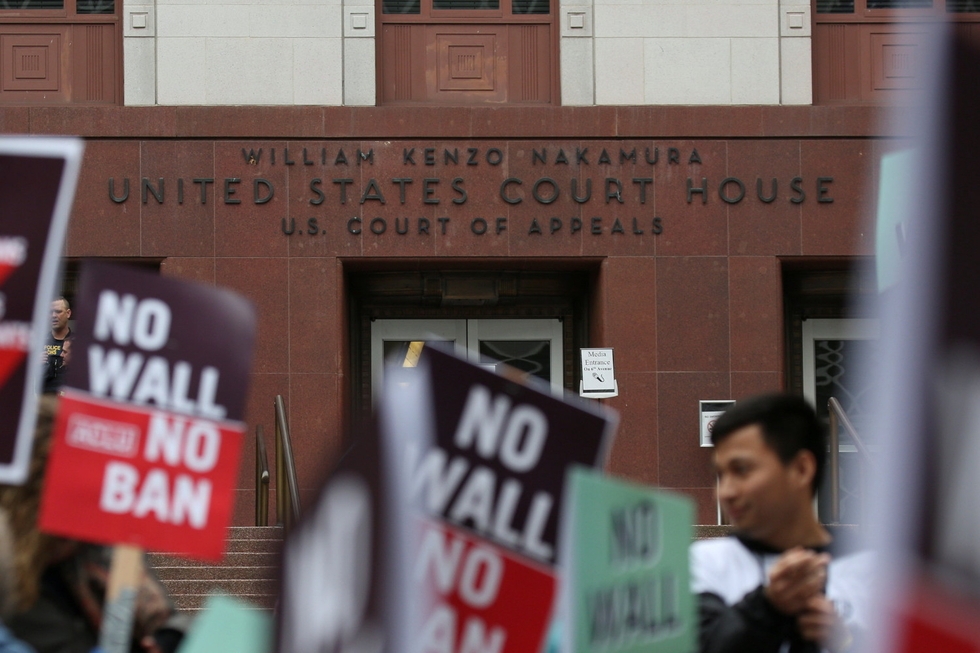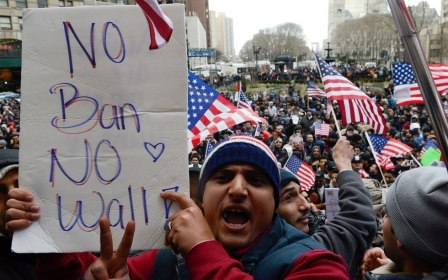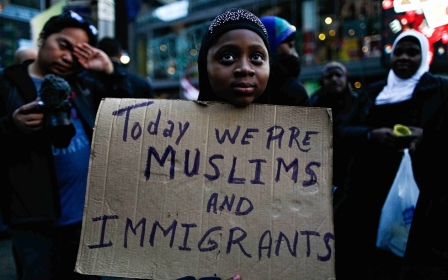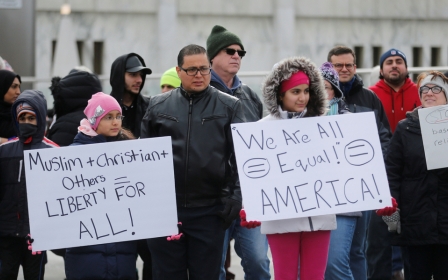Trump 'Muslim ban': Federal judges hear appeal on revised order

A US appeals court on Monday questioned Justice Department attorneys over President Donald Trump's temporary travel ban on people entering the United States from six Muslim-majority countries, the second such court to review Trump's directive over the past week.
A three-judge 9th US Circuit Court of Appeals panel, made up entirely of judges appointed by Democratic former President Bill Clinton, reviewed a Hawaii judge's ruling that blocked parts of the Republican president's revised executive order on travel.
The March order was Trump's second effort to craft travel restrictions. The first, issued on 27 January, led to chaos and protests at airports before it was blocked by courts. The second order was intended to overcome the legal problems posed by the original ban, but it was also suspended by judges before it could take effect on 16 March.
There is no case like this, is there?
- 9th Circuit Judge Richard Paez
US District Judge Derrick Watson in Hawaii blocked 90-day entry restrictions on people from Libya, Iran, Somalia, Sudan, Syria and Yemen, as well as part of the order that suspended entry of refugee applicants for 120 days.
As part of that ruling, Watson cited Trump's campaign statements on Muslims as evidence that his executive order was discriminatory.
"There is no case like this, is there?" 9th Circuit Judge Richard Paez asked at the appeals court hearing in Seattle on Monday.
Acting US Solicitor General Jeffrey Wall said no one has tried to set aside a law based on a candidate's campaign statements, adding that there was not enough evidence to show bad faith on the government's part regarding Trump's order.
Last week the 4th US Circuit Court of Appeals in Virginia reviewed a Maryland judge's ruling that blocked the 90-day entry restrictions. That court is largely made up of Democrats, and the judges' questioning appeared to break along partisan lines. A ruling has not yet been released.
Arguing that the United States needed to tighten national security measures, Trump's attempt to limit travel was one of his first major acts in office. The fate of the ban is one indication of whether the Republican can carry out his promises to be tough on immigration and national security.
Opponents - including the state of Hawaii and civil rights groups - say that both the first ban and the revised ban discriminate against Muslims. The government argues that the text of the order does not mention any specific religion and is needed to protect the country against attacks.
Outside the Seattle courtroom a group of protesters gathered carrying signs with slogans like, "The ban is still racist," and "No ban, no wall."
The US Supreme Court is likely to be the ultimate decider, but the high court is not expected to take up the issue for several months.
New MEE newsletter: Jerusalem Dispatch
Sign up to get the latest insights and analysis on Israel-Palestine, alongside Turkey Unpacked and other MEE newsletters
Middle East Eye delivers independent and unrivalled coverage and analysis of the Middle East, North Africa and beyond. To learn more about republishing this content and the associated fees, please fill out this form. More about MEE can be found here.




